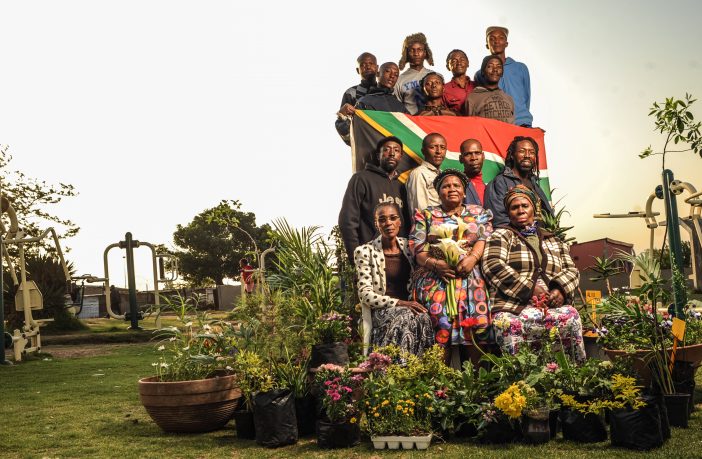- As the continent celebrates Africa Day, the Climate Justice Coalition today launched a booklet which details how to transform Eskom – the biggest polluter on the African continent.
- The booklet is part of its Green New Eskom campaign which is demanding a rapid and just transition to a more socially owned, renewable energy powered economy.
Francina Nkosi from the Waterberg Women’s Advocacy Organisation said:
“With Eskom, there is less community participation and with this campaign, we’re demanding our rights and we’re claiming our rights because it’s a bottom-up approach of saying we need to have a just transition.”
Using farming as an example of how communities are adversely affected by pollution, she emphasised that it is people who suffer most from climate change and said it is not sustainable for the government to continue using coal.
Related news: Eskom repeatedly exceeds air pollution limits
The campaign, which was launched last year, was developed by the Climate Justice Coalition. The coalition is made up of South African trade union, civil society, grassroots, and community-based organisations working together to advance climate justice.
The booklet, which will be published in English, Sesotho, isiXhosa, isiZulu and Afrikaans, outlines why Eskom has to move away from coal to renewable energy as soon as possible to ensure a better future for our most vulnerable citizens. Doing so can ensure it provides clean, safe, and affordable energy for all, as most South Africans cannot afford to live off the grid and will be heavily reliant on the government parastatal to provide electricity for many more years to come.
Activists from the coalition highlighted why Eskom cannot be allowed to die and instead needs to transform from a national burden to a national asset and a force for climate and energy justice. Activists drew on the Green New Eskom booklet and multiple studies to show how transforming Eskom and pursuing renewable energy can ensure greater economic growth and job creation, while reducing pollution and climate change. One of the biggest obstacles to change, however, is the Department of Mineral Resources and Energy (DMRE).
Alex Lenferna, 350Africa.org campaigner and secretary of the Climate Justice Coalition said:
“In South Africa, and across pretty much the whole world, renewables are now our cheapest most affordable energy source and so it’s quite clear that this should be our energy future. Instead we have the likes of the Department of Mineral Resources and Energy rigging our energy plan, the integrated resource plan, to force in new coal, to force in a lot of new fossil gas.”
Author: Bryan Groenendaal















